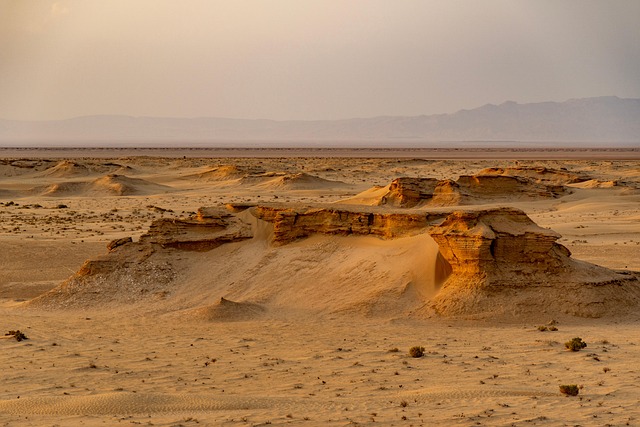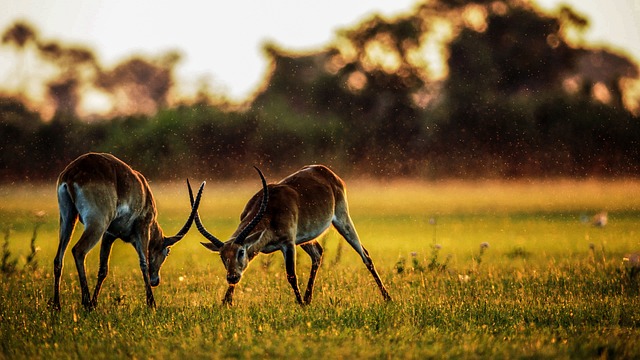The growing demand for sustainable tourism in Dubai's iconic Evening Desert Safari highlights the need for eco-conscious practices. Eco-friendly operators are transforming traditional safaris by adopting energy-efficient vehicles, minimizing light pollution, promoting responsible waste management, and supporting local conservation efforts. By embracing these principles, these safaris not only preserve natural wonders but also fund local conservation initiatives and raise awareness about habitat destruction and climate change impacts. Planning an eco-friendly safari requires strategic choices like choosing smaller groups, favoring local catering, and adhering to trail rules. Innovative planners are revolutionizing these experiences, integrating sustainable practices that benefit both local communities and ecosystems, ensuring a positive impact while delivering unforgettable adventures.
“Discovering nature at night has never been more sustainable! This article explores the growing trend of eco-conscious night safari planning, with a special focus on the iconic Evening Desert Safari Dubai. We’ll delve into how these experiences contribute to conservation efforts while minimizing environmental impact. From key practices for eco-friendly planning to its benefits for local communities and ecosystems, this guide highlights the positive changes happening in the world of night safaris.”
- Understanding the Need for Eco-Conscious Safaris
- The Role of Evening Desert Safari Dubai in Conservation Efforts
- Key Practices for Planning an Eco-Friendly Night Safari
- Benefits and Impact on Local Communities and Ecosystems
Understanding the Need for Eco-Conscious Safaris

In recent years, there’s been a growing awareness and demand for sustainable tourism practices, especially in unique destinations like Dubai known for its Evening Desert Safari experiences. This shift towards eco-consciousness is not just a trend but a crucial response to the environmental challenges facing our planet. By embracing eco-friendly principles, night safari planners can significantly reduce their ecological footprint while offering travelers memorable adventures.
The need for eco-conscious safaris is driven by the potential impact of mass tourism on fragile ecosystems. Traditional desert safaris may contribute to habitat degradation and wildlife disruption due to noise pollution, light contamination, and waste generation. Eco-conscious operators aim to mitigate these issues by adopting practices such as using energy-efficient vehicles, minimizing artificial lighting, promoting responsible waste management, and supporting local conservation efforts. An Evening Desert Safari Dubai can thus become a model for sustainable tourism, ensuring that future generations can also enjoy the region’s breathtaking natural wonders.
The Role of Evening Desert Safari Dubai in Conservation Efforts

The Evening Desert Safari Dubai offers more than just a thrilling experience; it plays a significant role in supporting conservation efforts across the region. These safaris, with their focus on the unique ecosystems and wildlife found in the desert, contribute to raising awareness about the importance of preserving natural habitats. Tour operators often partner with local conservation organizations, using revenue generated from these trips to fund initiatives aimed at protecting endangered species and restoring delicate ecological balances.
Through educational components integrated into the safari itinerary, visitors gain insights into the challenges faced by desert ecosystems, including habitat destruction and climate change impacts. By engaging with knowledgeable guides, participants learn about sustainable practices and how their choices can positively influence conservation outcomes. This combination of adventure tourism and environmental education fosters a deeper connection to nature, encouraging folks to become advocates for eco-friendly travel and conservation back home.
Key Practices for Planning an Eco-Friendly Night Safari

Planning an eco-friendly evening desert safari in Dubai requires a thoughtful approach to minimize environmental impact while delivering an unforgettable experience. Key practices include choosing operators committed to sustainable operations, such as those using hybrid vehicles or electric cars for reduced emissions. Opting for smaller groups helps preserve natural habitats and reduces waste per person.
Additionally, select itineraries that avoid sensitive ecosystems and focus on nighttime activities that do not disturb wildlife. Local, organic catering options should be preferred over imported foods to cut down on carbon footprint. Encourage participants to leave no trace by properly disposing of waste, respecting local flora and fauna, and adhering to designated trails. These practices ensure an enjoyable safari while contributing to the preservation of Dubai’s unique desert ecosystem for future generations.
Benefits and Impact on Local Communities and Ecosystems

Eco-conscious night safari planners are transforming experiences in destinations like Dubai, particularly the Evening Desert Safari, into sustainable practices that benefit both local communities and ecosystems. By prioritizing environmental stewardship, these planners ensure minimal ecological footprint through responsible waste management, conservation efforts, and education initiatives.
Moreover, they foster a deeper connection between visitors and nature by promoting ethical wildlife viewing, supporting local entrepreneurs in eco-friendly ventures, and encouraging cultural exchange. This approach not only preserves the intricate balance of delicate ecosystems but also empowers local communities to participate actively in the tourism industry, contributing to their economic well-being while preserving their natural heritage, making every Evening Desert Safari Dubai an experience that resonates with both sustainability and cultural preservation.
The Evening Desert Safari Dubai is not just a captivating experience; it’s a model for sustainable tourism. By embracing eco-conscious planning practices, operators contribute significantly to conservation efforts and local community development. This approach ensures that the unique ecosystems and cultural heritage of destinations like Dubai remain vibrant for future generations while offering visitors a responsible and enriching adventure.
